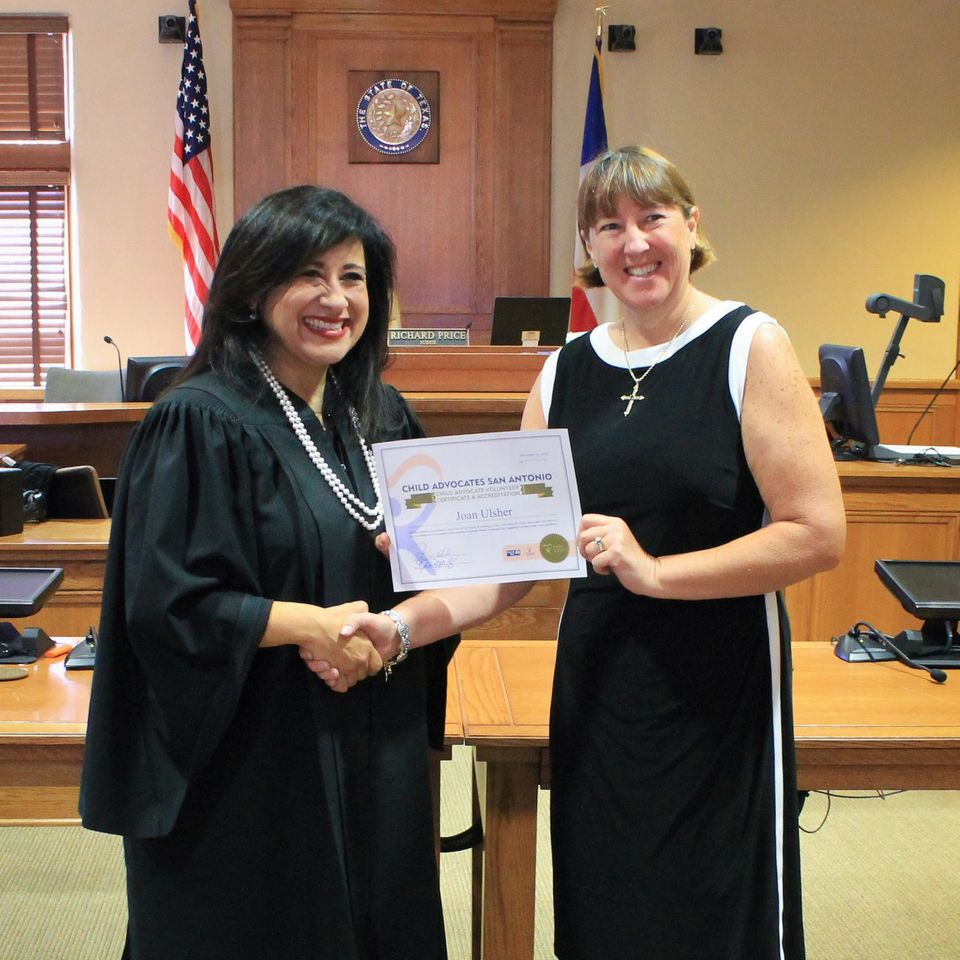Advocate Spotlight: Joan Ulsher
December Advocate Interview

1. How long have you been an Advocate and when did you realize you wanted to become one?
I have been a volunteer advocate for one year as of November. I realized I wanted to be an advocate after my husband signed up a couple months before me. I have also been mentoring a young man who aged out of foster care for 9 years now and realized this was the next logical step towards serving children in need. As a foster care alumni myself, I knew that all children need someone to speak up for them. I’m grateful God opened my eyes and heart and revealed that becoming a child advocate was my chosen path and purpose.
2. What is the most rewarding aspect of being an Advocate?
The most rewarding aspect of being an advocate is knowing I am making a positive difference in the kids lives and getting their affirmation for those efforts! Teens can be particular, but I feel like my teens have come a long way in trusting me and that is a powerful responsibility.
3. If you could offer words of encouragement to your fellow and incoming Advocates, what would they be?
New advocates should not be shy. Be sure to question decisions that your training and “gut” are telling you to address. You are the voice for the children you represent and they are counting on you to challenge CPS, the attorneys or even the ADA when there is a specific need that should be addressed. Of course, always keep in contact with your advocate supervisor. Expect that they will want you to be candid with them too. Be sure to come to every discussion, service plan, meeting, or court hearing fully prepared. Know your case backwards and forwards and do additional research on specific needs like special education, developmental milestones, mental health challenges, and trauma based care among others. There’s no limit- it’s all what makes sense to your specific case.

In November 2025, Child Protective Services received a referral involving two sisters, ages 13 and 14, who were found caring for themselves. Following the death of their father, the girls experienced ongoing abuse and neglect. They were living in unsafe and unsanitary conditions, frequently left alone without adequate food, functioning plumbing, or consistent supervision, and were exposed to strangers regularly coming in and out of the home. Shortly after removal, Tameka Woolfolk was appointed as the Advocate on the case. From the very beginning, Tameka became one of the few consistent and reliable adults in the girls’ lives. The children experienced and continue to endure placement changes. These frequent transitions created ongoing instability and further complicated the girls’ ability to heal and adjust. Throughout each move, Tameka remained steadily involved, working diligently to ensure that the children’s services and support continued without interruption. She supports the girls not only emotionally, but physically as well helping pack their belongings at each move, accompanying them during school tours, and remaining readily available whenever they need support. Neither child was initially aware that they had the right to speak directly with the judge. Tameka recognized the importance of their voices being heard and with the support of the Ad Litem, helped to facilitate their presence at court, requesting that the judge meet with the girls in a breakout room, so they could personally express their wishes, all with the department, CASA and the Ad Litem by their side. In addition, this case was referred to Collaborative Family Engagement (CFE). During CASA’s ongoing exploration for family connections alongside the Department, Tameka discovered the children’s father’s obituary. Through this discovery, it was learned that the girls’ father had served in the United States Army as a combat medic during the Vietnam War and later worked for 30 years in civil service. Tameka took the initiative to request documentation, including VA records and a death certificate, to determine whether the children might be eligible for survivor benefits. The obituary also revealed that the girls are two of fourteen siblings. While many of the siblings were unable to provide support, CASA and the Department were able to establish contact with one brother. Through Tameka’s strong collaborative relationship with the Department and the Attorney Ad Litem, a thoughtful and appropriate plan was developed to allow the girls to begin visits with their brother, his wife, and their cousins. Although this story is still unfolding, both girls know one unwavering belief, that no matter what comes next, they know that Miss Tameka will continue to stand beside them every step of the way.







